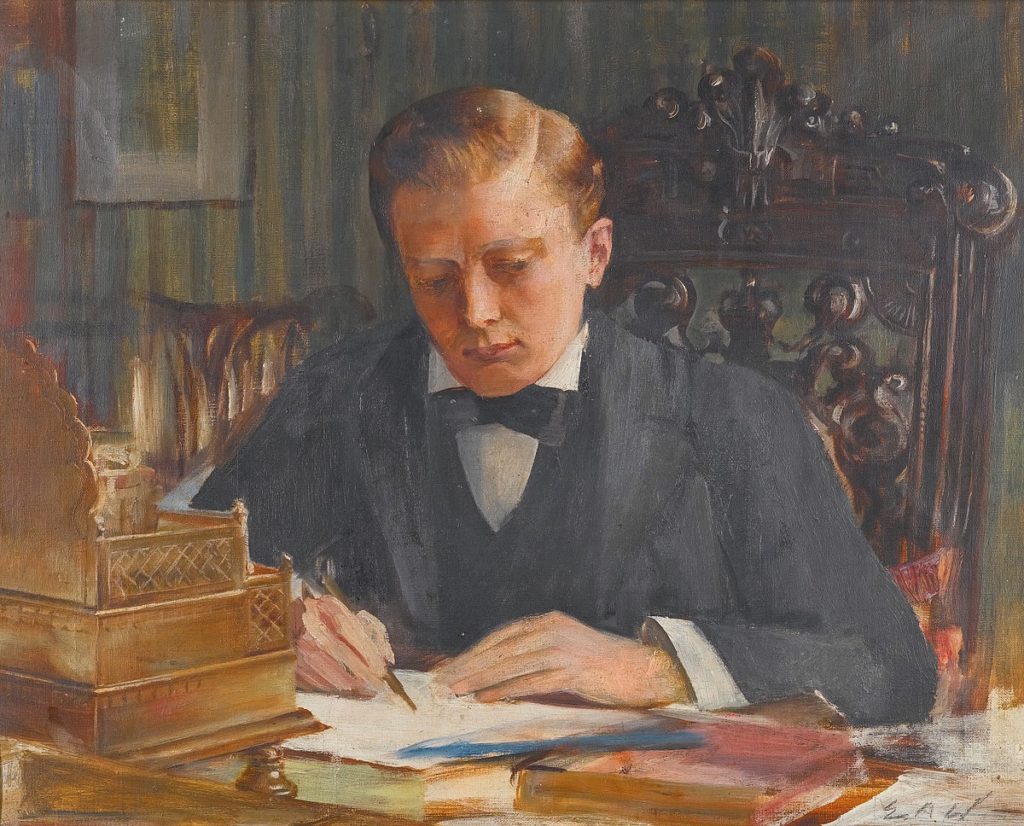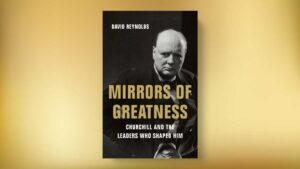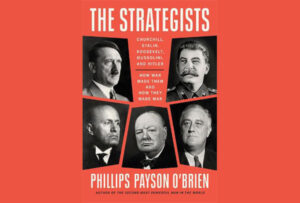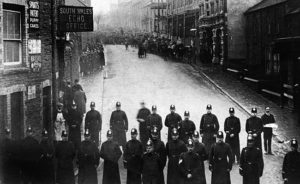Man of Words
Early Steps – First Speeches

Churchill as a young man, by Edwin Arthur Ward
August 18, 2021
Churchill’s first public speech was an impromptu one, when – in his last term at Sandhurst and on a visit to the Empire Theatre in Leicester Square – he called for makeshift barriers between the sexes, erected to prevent prostitutes from mingling with theatre-goers in the bar, to be pulled down (an unlikely cause for a nineteen-year-old young man): ‘Ladies of the Empire, I stand for Liberty!’
‘He is a remarkable fellow – perhaps the finest orator in America, with a gigantic C. J. [Charles James] Fox head – & a mind that has influenced my thought in more than one important direction.’
Churchill, writing about Bourke Cockran in a letter to Clementine, 30 May 1909, in Soames, Speaking for Themselves
Although he always regarded his first political speech as one he gave at a picnic of the Primrose League (a Conservative organisation) in July 1897 (aged twenty-two and still a serving officer on leave from his regiment in India), his true maiden speech in the House of Commons was on 18 February 1901.
He was twenty-six years old and had taken his seat as a Conservative member in the new Parliament only four days earlier. He spoke immediately following Lloyd George, ensuring the young politician a very full house. Churchill had prepared his speech very carefully and more or less learned it by heart. Although he was to continue this meticulous preparation throughout his career, he would – after one disastrous speech – abandon relying on his memory.
Churchill was eager to emulate Lord Randolph and memorised the latter’s speeches (in The Dream, written after 1947, Churchill quotes from his father’s speech on the Church of England in 1884) and even occasionally adopted his father’s style of dress and pose when speaking (although these similarities clearly didn’t register with Massingham of the Daily News).
Another important influence in his speech-making development was almost certainly the Irish-American politician Bourke Cockran, whom he met on his first trip to the US in 1895. Churchill later wrote of Cockran: ‘[H]is conversation, in point, in pith, in rotundity, in antithesis, and in comprehension, exceeded anything I have ever heard’ (Churchill, February 1931, Strand Magazine).
Subscribe
WANT MORE?
Get the Churchill Bulletin delivered to your inbox once a month.






